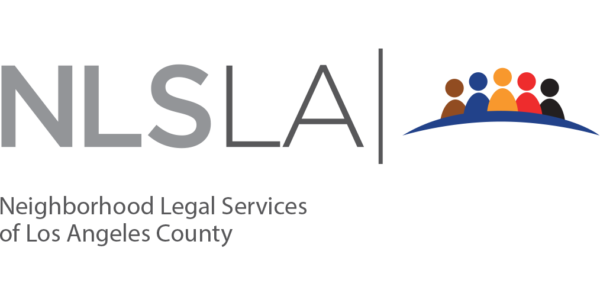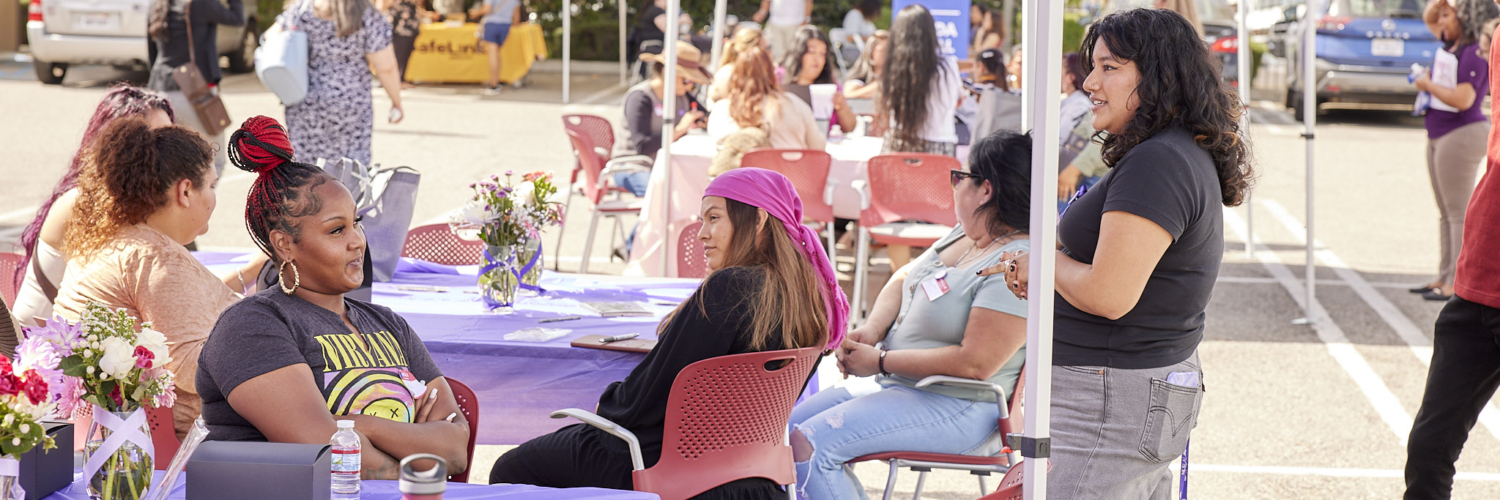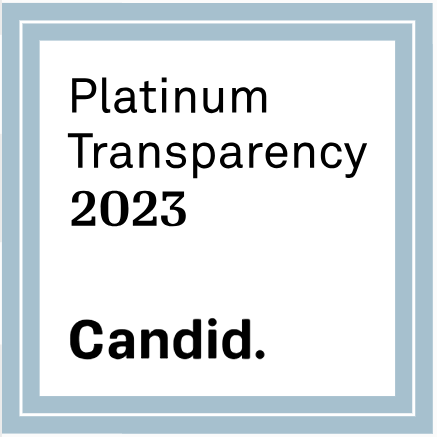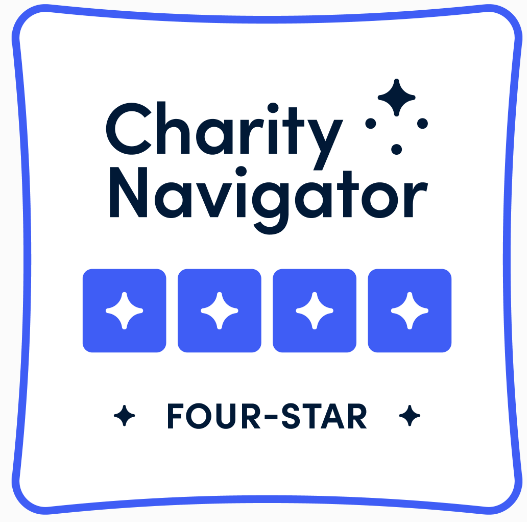Post-Law School Fellowship Opportunities
Neighborhood Legal Services of Los Angeles County (NLSLA) partners with law school graduates who view the law as a powerful tool for social change. We accept fellowship proposals on a rolling basis and are especially interested in working with students who are looking to combine direct legal services with systemic advocacy to make a meaningful impact in the lives of people living in poverty across Los Angeles County.
We have a long history of hosting post-graduate students through national fellowship programs like Skadden and Equal Justice Works, as well as fellowships at individual law schools. Practice areas we support include housing, immigration, family law, health, clean slate/re-entry, education (specifically unlawful school discipline), public benefits, and courthouse-based Self-Help Legal Access Centers. For 2023-2024, we are especially interested in projects focusing on education, healthcare and health equity, and racial and economic justice.
If you are a student interested in pursuing a fellowship in any of the projects detailed below, or if you have another project you would like to pitch, please send your resume and a brief description of your proposed project to Skip Koenig, Director of Pro Bono, at .
Clean Slate Initiatives
Family Maintenance & Reunification Project
Supporting formerly incarcerated individuals on a path toward familial reconnection
The NLSLA Clean Slate Initiatives team is seeking proposals from students who wish to examine the intersection of criminal records and family maintenance/reunification. Proposals should identify the familial harms experienced by this population, including how records can interfere with a parent or relative’s ability to visit and/or reside with minor children. The ideal proposal will contemplate a direct legal services component, systemic advocacy, and outreach, community engagement, and pro bono recruitment.
Mitigating the Burden of Sentencing
Promoting successful reentry of individuals on court-ordered supervision
The team is seeking proposals from students who are interested in developing a project that addresses the reentry legal needs of persons currently on probation, parole, or other forms of court-ordered supervision. Proposals should identify the specific barriers to successful reentry faced by this population and how court-ordered supervision terms can negatively impact a person’s ability to access housing, employment/income, and other resources. The ideal proposal will contemplate a direct legal services component, systemic advocacy, and a plan for outreach, community engagement, and pro bono recruitment.
Workers’ Rights and Public Benefits
Low-Wage Immigrant Workers’ Rights Project
The NLSLA Workers’ Rights team is seeking proposals from rising 3L students who wish to address discrimination, harassment, and wage theft by building awareness, connecting low-wage, immigrant workers to workplace rights and benefits, and implementing worker-driven strategies to address these systemic workplace harms. Selected candidates will work to reach workers in marginalized communities that are disproportionately impacted by immigration-related workplace discrimination, including but not limited to, workers in immigrant-dominated sectors, immigrants, workers with limited English proficiency, and survivors of trafficking (with a potential emphasis on the API community). The ideal proposal will include activities that:
- Build awareness through the dissemination of information and educational materials that are worker and survivor-centered;
- Ensure workers are aware of all employment rights, wages, and benefits due to them through targeted outreach (if API, media outlets);
- Implement worker-driven strategies that mitigate workplace risks and prevent workplace harassment, discrimination, and fear of retaliation that include direct legal services;
- Connect workers to services, benefits, and/or legal assistance as needed, reasonable, and/or available; and
- Facilitate and encourage low-wage, recent immigrants to become involved with worker centers addressing workplace harassment, discrimination, and wage theft.
Access to Public Benefits Project
The NLSLA public benefits team assists individuals who are having difficulty accessing or maintaining public benefits that they rely on to eat, maintain their housing, pay for medicine, and generally survive. These benefits are administered by the Los Angeles County Department of Public and Social Services (DPSS), and include CalFresh (Food Stamps), CalWORKs (welfare), General Relief (cash aid for indigent adults), CAPI (cash assistance for elderly and disabled immigrants) and other benefits. We also focus on Social Security Administration (SSA) benefits, such as SSI, SSDI and Retirement, which often are the only sources of income for disabled and elderly people. Our practice is growing, with an increased focus on immigrant access to public benefits.
The team is seeking proposals from students who are interested in developing a project related to access to public benefits for vulnerable populations in Los Angeles, including people who are unhoused, immigrants, domestic violence survivors, people with disabilities, limited English speakers and people of color. A project may consider the integration of public benefits access into solutions to the housing and homelessness crisis, strategies to reach and enroll immigrants who historically are underenrolled in public assistance, and ways to utilize technology and the new statewide benefits eligibility website and case management system (CalSAWs) to improve benefits access and retention. The ideal proposal will include direct legal services, outreach, and systemic advocacy.
LA County Self-Help Center Opportunities
Self-Help programs provide essential access to education and legal assistance for low-income persons or persons with limited literacy or limited English language proficiency. NLSLA’s Self-Help Legal Access Centers educate, empower, and assist litigants who do not have attorneys with family law and housing matters, and make referrals for full scope representation when appropriate.
The Self-Help Centers assist litigants in 60% of all Family Law/Domestic Violence cases and 40% of all eviction actions filed in Los Angeles County. These Centers have made Los Angeles County a leader in providing meaningful access to the judicial system and are often held up as a national model. In 2023 the Self-Help team assisted 55,651 litigants with a spectrum of legal issues.
The need for free legal assistance far outweighs the funding and staffing that currently exists. To bridge the gap, and to increase access to justice for more self-represented litigants, Self-Help programs are currently focused on expanding the use of technology to increase the efficiency of its remote operations.
A Self-Help fellowship could include the design, development, and implementation of a technology related project. NLSLA is looking for ways to use Microsoft 365 Office Suite (Power Automate, Microsoft Forms, Microsoft Outlook, Microsoft Excel, etc.) to automate and speed up administrative tasks, and the delivery of services to litigants. A project might include 1. setting up processes that automate the completion of documents that will be filed with the court; 2. the creation of an MS Form to gather information from litigants and a Powerautomate flow to send notifications or the information provided by litigants to staff and/or volunteers; or 3. create easy to understand educational videos for the public.
Alongside a dedicated and passionate team of paralegals and attorneys, the fellow will have the opportunity to work directly with the public, applying the law to real life situations. A fellowship with the NLSLA Self-Help unit will not only provide the right candidate with an experience in all areas of NLSLA’s practice, they will also have an opportunity to make a lasting impact on the delivery of services to a significant percentage of people who need legal assistance throughout Los Angeles County.
NLSLA is committed to the principle of equal employment opportunity for all employees and to providing employees with a work environment free of discrimination and harassment. All employment decisions at NLSLA are based on organizational needs, job requirements and individual qualifications, without regard to age, race, color, religion or belief, sex, sexual orientation, gender identity, national origin, veteran, disability status, family or parental status, or any other status protected by federal and CA state laws. NLSLA will not tolerate discrimination or harassment based on any of these characteristics.



